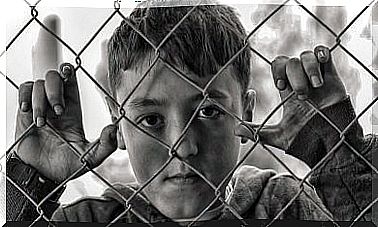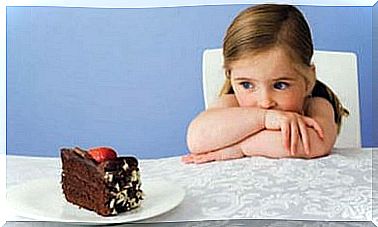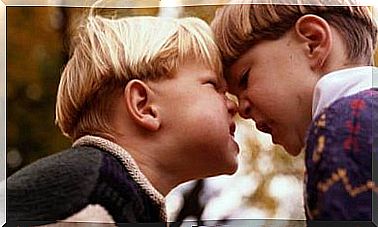Fables And Childhood Fantasies, A Red Flag?
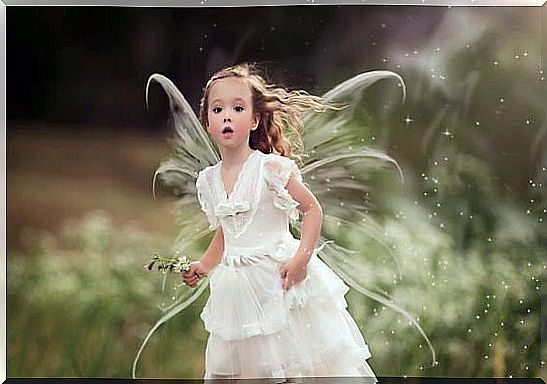
Children between 3 and 5 years old tend to create a world in their head and, when they externalize and manifest it, parents tend to worry, often for no reason. Now, in case the much mentioned childhood fantasies are present, should we consider them an alarm signal?
You have probably wondered if it is normal for your child to speak to himself, imagine characters, create stories and situations that never happened. Don’t worry because childhood fantasies are absolutely normal at this stage of development.
The appearance of these childhood fables and fantasies is due to the fact that, in this stage, the boys have an overflowing imagination to the point that reality and fiction merge and confuse. That is why this period is called “the age of magical thinking.”
Of course, you must be vigilant and know how to differentiate fantasies from lies, which is a complex task. However, before judging the minor, you must consider the age, maturity, personality and intentionality of what your child narrated.
Isn’t it fair for the child to create his own adventures? It is necessary that you bear in mind here that he already chose to believe in the inventions of the elders, such as the Mouse Pérez, the goblins and the fairies, among so many fictional and inanimate beings capable of coming to life.
Childish fantasies or lies?
Children under three years old never lie, even saying things that have no correlation in reality, since for them they are true and that is enough for them. For in the age of magical thinking there is a preponderance of the subjective over the objective, in addition to there being no clear limits between reality and fantasy.
A 5 or 6 year old child continues to have fantasies but no longer shares them as it distinguishes them from reality. From the age of 7, if you blame your brother for having destroyed an object that he broke or claim to have forgotten his bulletin due to a bad grade at school, this is a lie.
In such cases, these types of actions are classified from psychology as “defense lies”, which can be used for their own benefit or for the good of the other. Other times the child may show off, claiming acts he has even done “to look good.”
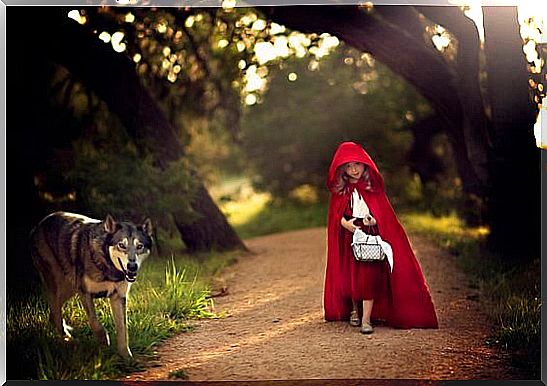
These isolated lies are unimportant, but it should be avoided that the boy begins to lie systematically, denying even the obvious and irrefutable, thus becoming a shameless liar capable of becoming a storyteller and even a mythomaniac who loses his sense of reality.
Keys to differentiate childhood fantasies from lies
- The age of the child. It is not possible to speak of lies with the will to deceive before the age of 7 years since the minor cannot differentiate his inner world from the outer one, between his wishes and reality. For this reason, in children between 3 and 4 years old, it is stated that the child does not lie, but fantasizes. Only at the age of 8 do lies appear with the intention of, for example, attracting attention, looking good, looking funny, getting out of annoying situations, that is, avoiding responsibilities and punishments.
- The maturity. Each child is a world and, therefore, has its own maturation times, which respond in different ways according to multiple factors (genetic, social, family or cultural). That is why not only the chronological age is important but also the mental or maturing age of the child.
- The personality. This is a fundamental aspect that we must consider since the child’s personality provides relevant and reliable information about the possibility of dealing with a vile lie or a story that is the result of his overflowing fantasy. There is no shortage of children who are over 7 years old and yet they are so imaginative that they can continue to fantasize.
- The intentionality. It is worth clarifying that the intention in the case of childhood fantasies is clearly exploratory, in order to get fun but never trying to deceive in order to avoid possible scolding. On the contrary, when it is a lie, the child distorts a real fact by affirming or denying something with the intention of deceiving with the ultimate aim of avoiding unfavorable consequences or seeking the approval of his environment.
Benefits of children’s fantasies

The imagination helps children to interpret and recreate the world that surrounds them in such a way that children’s fantasies become an instrument capable of facilitating the understanding and acceptance of certain rules and limits, as well as helping them to create an intimate environment full of magic that only he has access to.
In this way, the imagination is the basis of the child’s creativity, and therefore, it must always be free and respected, as well as valued. Well, when the creature imagines and fantasizes, it also has fun and expresses problems and concerns in a world that belongs to it.
By creating this universe in his own mind, the rules and decisions belong only to him, so he feels capable of controlling everything and everyone : he can invent friends, brothers, peers, etc. It even tends to mix the dream with reality.
According to experts, other advantages of childhood fantasies in the full development of your children are :
- They favor your creativity, imagination and sensitivity. Let yourself be surprised by his reasoning and curious auctions, he will surely leave you reflecting or laughing for a while.
- It facilitates your ability to entertain yourself by driving away boredom. It does not take any technological element to invent the thousand and one funniest games just with the simple use of your imagination and creativity.
- It develops your intelligence, as it is a useful and fundamental intellectual exercise at this stage.



